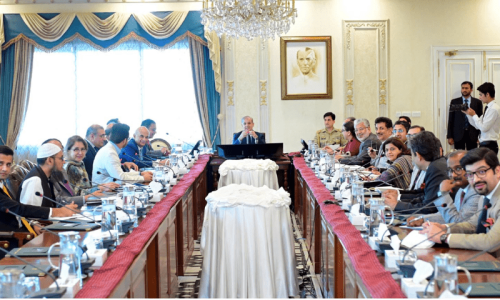LAHORE: The All Pakistan Muslim League (APML) has termed former president Asif Ali Zardari’s statement in which he blamed Pervez Musharraf for destabilising the Sindh government, a “reflection of PPP’s insecurity”.
Chaudhry Sarfraz Anjum Kahlon, political adviser to Musharraf, said here on Monday that Mr Zardari’s statement was a “reflection of the frictions within the PPP and its failure to meet the basic expectations of the people”.
Kahlon said during PPP’s five-year term Mr Zardari demonstrated no interest in seeking justice in the Benazir case.
He called upon the PPP to refrain from petty political point scoring in the backdrop of a national security threat.
Published in Dawn, December 30th, 2014












































